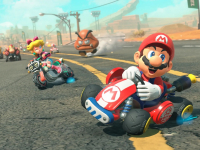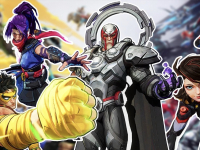
Photo: Mark Sommerfeld
You may not have heard of Cadence Weapon aka Roland Pemberton yet, but this Canadian rapper will soon be on your hip-hop radar. His long awaited, self-titled release is here, and we could not wait to get our hands on it…
This former Edmonton (Alberta, Canada) poet laureate is far from your average rap star, with skills ranging far beyond the recording studio. Not only has he received coveted accolades as a poet, but he is also a published author. His 2005 debut Breaking Kayfabe was brought out on Big Dada, a label which many Brits will be familiar with, thanks to their Roots Manuva releases. The label was distributed by Ninja Tune, who are responsible for releases from everybody from Wiley to Kate Tempest.
Since his Polaris Prize shortlisting, and successful second album Hope In Dirt City, Pemberton left fans waiting six long years before unleashing any new material. This year’s self-titled Cadence Weapon, showcases top Canadian beat makers and musicians like Jaques Greene, Kaytranada, Ango and Blue Hawaii, fusing hip-hop styles with electronic elements. The resulting rap-electro is not necessarily pioneering, but it makes a point nonetheless. Pemberton has openly admitted that repetitive European club music has heavily influenced his musical output.
“I’m a big Basement Jaxx fan. I like the way their music sounds, really like it’s a party happening. It sounds really organic and super-tech. Switch. Obviously Daft Punk. I’m into very European stuff. I like some of the Ed Banger stuff. Dubsided Records.”
But his parent’s influence was the total opposite, teaching him about groove and musicality. Thanks to his musically diverse surroundings, Pemberton stumbled across rapping.
“It was around me all the time when I was growing up, my dad was a DJ and he would play all sorts of stuff around the house, Hip hop, electro, funk and my mum would play piano. And I suppose I just randomly got into rapping. I remember rapping in math class, I failed maths, but I suppose I did OK in other things.”
Drake has fortunately paved the way for other Canadian acts, such as Tory Lanez and Cadence Weapon, to emerge as world wide success stories. His influence is unmistakeable across the vast majority of today’s pop music, and Cadence appears to be no exception; Pemberton also cites Future as an inspiration. The album is introduced by a distant, fuzzy dialogue, and a masked, funky drum groove. What follows is hazy and jazzy, the raps are full of finesse but the writing appears rushed. The intro to “Destination” teases with a soulful sample, followed by a delicious 80’s style arrangement; Deradoorian’s (formerly of the Dirty Projectors) additional vocals add a necessary feminine touch.
We swiftly move towards a large portion of surprisingly nasty, hard-hitting trap beats. On “My Crew (Wooo)”, Pemberton’s ambitious raps, and unoriginal flow rides an experimental palette. Elsewhere the immaculate production of “Don’t Talk To Me”, is a real highlight. Pemberton’s vocals are a decent, but unmemorable nod to Drake. Without a doubt the album’s best track is “Large”. Providing a fresh outlook on stereotypical cliches, it boasts a jaw dropping instrumental. Unfortunately the vocals still miss the mark, with a hook that has so much untapped potential. For less serious listening, the tongue-in-cheek, alternative party anthem “Soju” is a solid ode to rice wine, which ultimately sounds unfinished.
There are subtle smatterings of late 90’s / early 2000’s European house music, with hints of Spanish chords even hidden behind the album’s tougher beats. Pemberton also draws for Latin / Caribbean rhythm on “Infinity Pool” and “System”. The less energetic, dizzy “Five Roses” slows the pace at the album’s halfway point, featuring heavenly backing vocals from Blue Hawaii.
 Throughout the album Cadence sounds unconvincing alone, with the majority of tracks screaming out for a feature. He provides eloquence alongside sloppiness, lacking the crucial consistency needed for a full length album. There are a number of strong verses, but an overall shortage of hooks. His lyrics are as dynamic as his rap style, highlighting classism, gentrification, racism, and sexism, not simply “clubs and women” like some of Pemberton’s peers (although both nightlife and female company are addressed a number of times too). At its lowest, the album fails to engage, but during its immersive, storytelling moments, it may have you hooked.
Throughout the album Cadence sounds unconvincing alone, with the majority of tracks screaming out for a feature. He provides eloquence alongside sloppiness, lacking the crucial consistency needed for a full length album. There are a number of strong verses, but an overall shortage of hooks. His lyrics are as dynamic as his rap style, highlighting classism, gentrification, racism, and sexism, not simply “clubs and women” like some of Pemberton’s peers (although both nightlife and female company are addressed a number of times too). At its lowest, the album fails to engage, but during its immersive, storytelling moments, it may have you hooked.
This could be Cadence Weapon’s strongest album to date, as he reaffirms his position in the rankings amongst an ever growing sea, of Canadian up and coming competition. Why not come in to your local Richer Sounds and take this record for a spin in one of our demo rooms?






